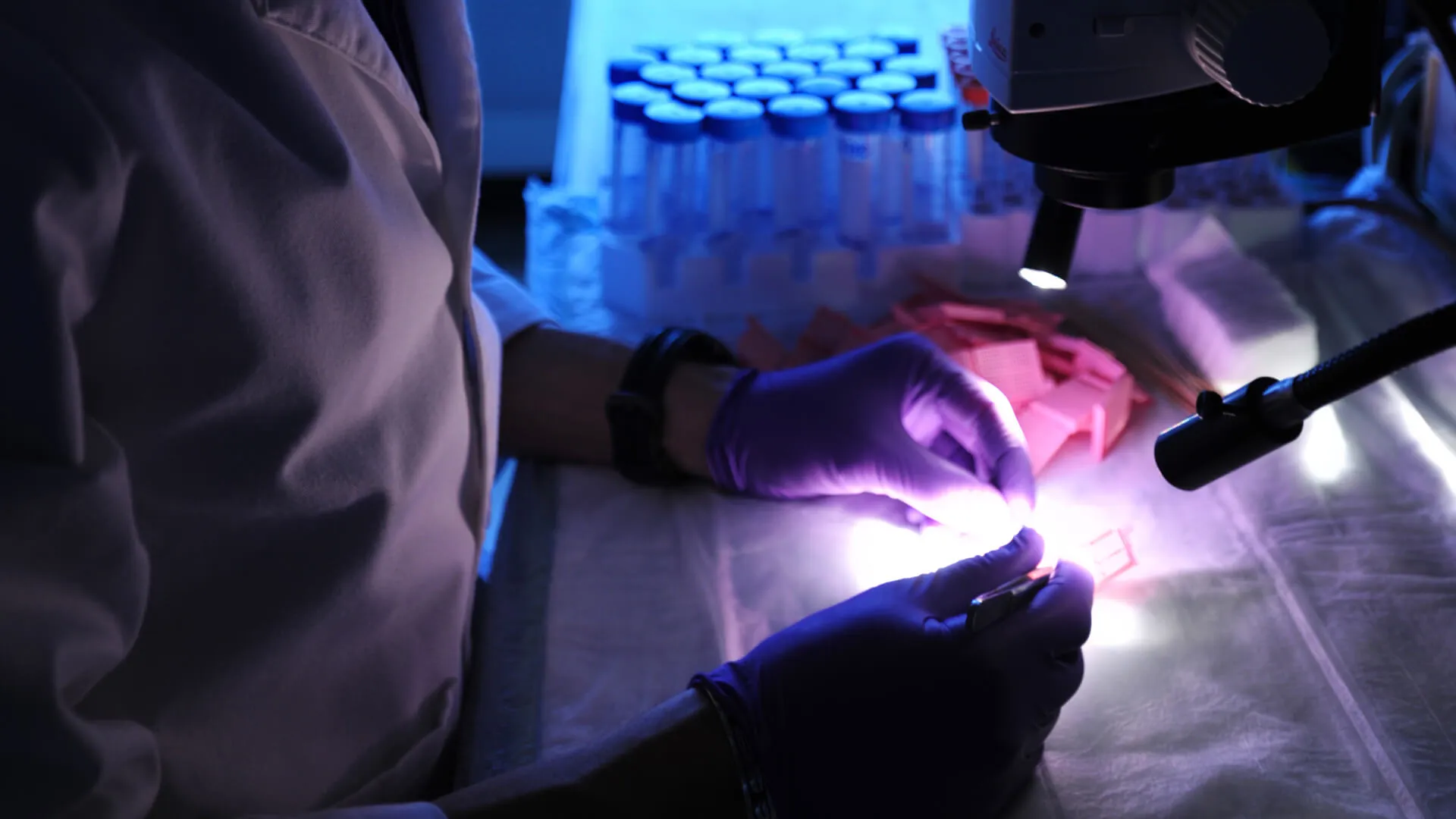Alongside our faculty research, our department leads the NIH-funded Northern New England Clinical and Translational Research Network, addressing rural health challenges through prevention, early detection, treatment, and survivorship of diseases like cancer, cardiovascular, metabolic, diabetes, and musculoskeletal conditions. We also direct the NIH-supported Vermont Biomedical Research Network, which builds research infrastructure and guidance for educators and undergraduates across Vermont.
Areas of Research
Cancer Biology and Pathology
Many cancers, such as osteosarcoma, soft tissue sarcoma, leukemia, lymphoma, and carcinomas of the skin, liver, colon, breast, and prostate, stem from cell biology defects. Research focuses on cell growth regulation and the connections between dysregulated growth, cancer, and aging. Key topics include the genetic and epigenetic regulation of oncogenes and tumor suppressors, compromised cell cycle control, cell senescence, chromosome segregation, cancer stem cells, and cell motility. Additionally, investigations examine the relationship between chromatin and nuclear structure, gene organization, and tumorigenesis.
Bone Biology and Skeletal Complications of Malignancies
The Department of Biology offers specialized programs that focus on molecular, cellular, and genetic models to explore regulatory mechanisms in bone and cartilage formation and homeostasis. Research includes cell proliferation in the musculoskeletal system and stem cell commitment to osteoblast differentiation. Current pathologic studies investigate osteopetrosis, metastatic bone disease, dwarfism-related chondrodysplasia, rheumatoid and osteoarthritis, age-related bone loss, and embryonic malformations affecting signaling pathways and transcription networks. Human and mouse bone tissue analyses are supported by Core facilities for genetic, epigenetic, and proteomic studies, specialized histology, in vivo molecular imaging, scanning and electron microscopy, and high-resolution micro-computed tomography.
Cellular Structure and Function
Research is investigating the regulatory mechanisms in treatment-resistant cancer stem cells that contribute to disease recurrence. The nucleus organizes nucleic acid metabolism through interconnected structures: DNA-rich chromatin, RNA-containing nuclear matrix, and the nuclear lamina/envelope. These structures spatially coordinate DNA replication, RNA transcription, RNA processing, and chromatin organization. Alterations in these structural relationships are significant contributors to diseases like cancer and premature aging.
Coagulation Biology and Disease
The Coagulation group is investigating all aspects of hemostasis. The work includes the identification, purification, kinetic characterization and structure determination of new clotting factors and inhibitors, pseudo in-vivo functional studies, cascade modeling, the role of the platelet and the identification of genetic risk markers.
Enzymology, Physical Biochemistry, and Structural Biology
Enzymes play a crucial role in biochemistry, with complex processes involving substrate recognition, cleavage, and release. The Department is utilizing quantitative and structural methods to study various enzymes, including selenium-containing enzymes, tRNA synthetases, coagulation cascade co-factors, and DNA replication mechanisms. As part of the UVM College of Medicine’s Structural Biology Initiative, the Department is committed to establishing structural biology as a core research discipline on campus.
Functional Nucleic Acid/Protein Interactions
How are DNA replication forks assembled and regulated, and how do synthetases select specific tRNA partners? How are DNA double-strand breaks repaired? Understanding transcription, translation, DNA replication, repair, and recombination mechanisms is crucial for predicting genome stability, understanding carcinogenesis, and designing anti-tumor and anti-microbial agents. Biochemistry Faculty investigating Nucleic Acid/Protein Interactions address these issues using thermodynamic, kinetic, and structural studies of DNA-protein and RNA-protein complexes, site-directed mutagenesis, and biochemical assays for DNA and RNA synthesis, tRNA aminoacylation, and DNA repair and recombination.
Clinical and Translational Projects
The Department of Biochemistry provides leadership for the NNE-CTR, an NIH-funded program that supports clinical and translational investigation to address the health and healthcare challenges of Northern New England rurality. A data science initiative and a Pilot Project program to address prevention, early detection, and survivorship of chronic disease that includes cancer, cardiovascular disorders, musculoskeletal diseases, substance use disorders, and mental health. The Biochemistry Department leads and coordinates the Vermont Biomedical Research Network, an NIH-supported program that is building biochemical research structure throughout Vermont by facilitating the research capability of faculty and the education of undergraduate students in Biomedical research.
